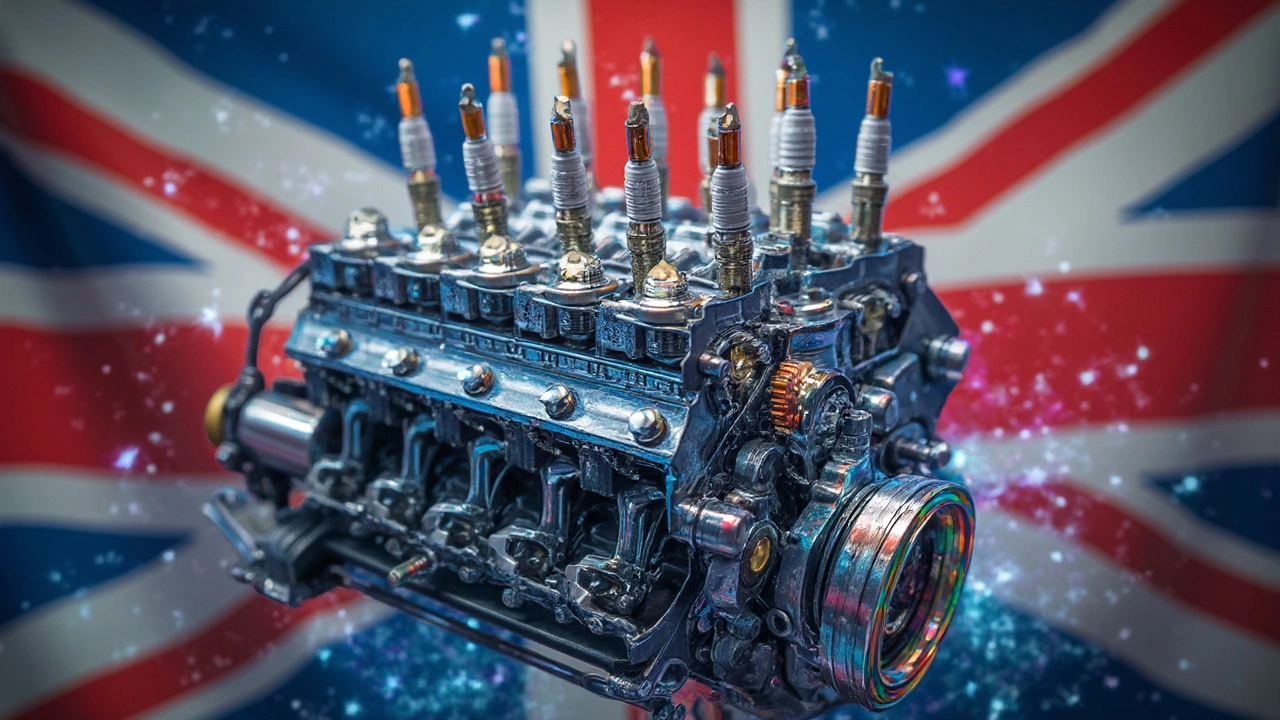Ever felt like your car's not living its best life? It might be time to look at those spark plugs. They're not just tiny pieces of metal; they play a big role in how your car's engine performs.
Spark plugs create the spark needed to ignite the air-fuel mixture in your engine's cylinders. Without this spark, your car doesn't move. When they're worn out or damaged, your engine can misfire, and your fuel efficiency can take a hit. Seems like a big deal for such a small part, right?
You might notice some telltale signs, like your car being harder to start, getting less mileage from a tank of gas, or the engine running roughly. These might point to the need for new spark plugs.
Think about changing them as a bit of a reset for your car's engine. With new spark plugs, you can experience noticeably smoother starts, better acceleration, and maybe even save a few bucks on fuel. It's a small change that can lead to big benefits.
- The Role of Spark Plugs
- Signs Your Spark Plugs Need Changing
- Benefits of Fresh Spark Plugs
- DIY vs. Professional Replacement
- Choosing the Right Spark Plugs
The Role of Spark Plugs
Spark plugs might be small, but they're essential for keeping your car moving smoothly. Imagine them as the match that lights the fuel-air mixture in your engine. This little spark causes a mini-explosion that powers your car. Sounds pretty important, right? Without it, your engine's just a heavy block of metal.
Why Spark Plugs Matter
These tiny components ensure your engine runs efficiently. They help achieve that perfect burn in the cylinder, giving you smoother rides and better fuel efficiency. When spark plugs wear out, they can't provide that spark effectively. This can lead to misfires, poor fuel economy, and even stalling.
How Do Spark Plugs Work?
Every time you start your engine, the spark plugs fire continuously to keep your engine running. They do this through an electrical arc that jumps the gap between electrodes at the tip.
- The arc ignites the compressed fuel-air mixture in the engine's cylinders.
- Each engine cylinder has its own plug, and they fire in a specific sequence for smooth operation.
- This repeating cycle is what keeps your car in motion.
Modern cars have sophisticated systems to maximize the efficiency of this spark, but when the plugs themselves are worn out, no amount of engineering wizardry can save your fuel economy or performance.
Did You Know?
On average, spark plugs need to be changed every 30,000 to 100,000 miles, depending on the type and quality. Ignoring this can lead to fuel efficiency dropping by up to 30%. Imagine what that does to your fuel bills!
Signs Your Spark Plugs Need Changing
So, how do you know when it's time for a spark plug swap? There are a few things to keep an eye out for that might signal your spark plugs are due for a change.
Starting Woes
If your car is having a hard time starting, it might be a sign that your engine performance is less than stellar due to worn spark plugs. They might not be creating a strong enough spark to kick things off smoothly.
Reduced Fuel Economy
Have you noticed your gas tank isn't getting you as far lately? Worn-out spark plugs can lead to inefficient fuel combustion, which means you're burning more fuel than usual. Not fun for your wallet, right?
Engine Misfires
A misfire can feel like your car's engine is stumbling for a moment. This can be caused by spark plugs that aren't firing correctly, interrupting the combustion process.
Rough Idling
When your car's idling, it should purr like a kitten. But if it sounds more like a clunky old dishwasher, it might be time to check those spark plugs out.
Poor Acceleration
If your car's response feels sluggish when you're trying to accelerate, worn spark plugs might be robbing you of that smooth driving experience.
Visual Inspection
Sometimes, just popping the hood and taking a look can give you the answer. If you see any unusual wear or damage on the plugs, it's a signal they might need replacing. Referencing a maintenance guide can help if you're unsure what you're looking at.
Addressing these signs sooner rather than later can prevent more expensive repairs down the line and keep your car running smoothly. Maintaining engine performance is crucial, and spark plugs play a key role in this.

Benefits of Fresh Spark Plugs
So, what’s the big deal with new spark plugs? You might be surprised by how much they can impact your car's performance.
Improved Engine Performance
Switching out those worn plugs can lead to a smoother-running engine, as fresh plugs provide a reliable and strong spark. This means more consistent firing of all cylinders, reducing the chances of your engine misfiring.
Better Fuel Efficiency
Who doesn't want to save on fuel? Replacing old spark plugs with efficient ones can improve fuel economy by around 7-10%, according to some car experts. That's more miles for your money!
Easier Starts
Ever had a morning where your car just refused to start up right away? New spark plugs can really help with that by ensuring your engine kicks into action without much fuss.
Smoother Idling
If your car's been vibing a bit too much at stoplights, fresh spark plugs can help the engine run smoothly, reducing strange vibrations and noises when idling.
Lower Emissions
For the eco-conscious, changing spark plugs can decrease harmful emissions. A properly firing engine burns fuel more efficiently, which is good for your car and the environment.
Data to Consider
| Condition | Fuel Efficiency Improvement |
|---|---|
| Worn Plugs | Drop by 7-10% |
| New Plugs | Boost by 7-10% |
Next time you’re under the hood, think about those little pieces of metal and the big difference they can make to your ride. It’s not just about keeping your car moving; it's about enhancing every trip.
DIY vs. Professional Replacement
Thinking about swapping out those spark plugs yourself? It's not as daunting as you might think, but it comes with its own set of pros and cons. Let's break it down.
Going the DIY Route
If you're the hands-on type who enjoys tinkering with your car, changing your spark plugs can be a satisfying project. You'll need some basic tools: a ratchet, a spark plug socket, and a torque wrench. A bit of elbow grease and a free afternoon, and you're good to go.
The benefits? You'll save some cash on labor costs, and you get the bragging rights for DIY success. Plus, you get to know your car a little better every time you pop the hood. Just make sure to consult your vehicle's manual for the exact specifications needed for the job.
- Time Required: Approximately 30 minutes to 2 hours depending on your experience
- Cost: Only the price of the spark plugs and any tools you may need
- Skill Level: Beginner to intermediate
Calling in the Pros
On the flip side, there's no shame in leaving this task to the professionals. They have the expertise and equipment to ensure the job's done right without any hiccups. Getting a professional to change your spark plugs means less hassle for you, and you're pretty much guaranteed that your engine is in safe hands.
The downside here is, of course, the cost. Labor fees can add up, especially if your car has one of those engines where getting to the spark plugs is like playing a round of automotive Tetris. But what you lose in cash, you gain in peace of mind.
- Time Required: Typically less than an hour at a shop
- Cost: Higher due to labor fees
- Peace of Mind: Priceless for some drivers
So, should you DIY or go pro? It depends on your comfort level and the complexity of your car's setup. Either way, ensuring your spark plugs are fresh and functioning is key to keeping your car purring like a kitten.

Choosing the Right Spark Plugs
Picking the right spark plugs isn't rocket science, but it does make a world of difference. Depending on your vehicle model, your engine may require a specific type. You won't want to grab just any spark plug off the shelf. Let's look into what you should consider.
Understand Your Engine's Requirements
Start by checking your car's owner manual. It's your go-to guide for the specifics about which spark plugs are recommended for your engine. Crucial things to consider include the plug gap, heat range, and the material used in the electrodes.
Material Matters
Spark plugs come in different materials, each with its benefits. Commonly, you'll find copper, platinum, and iridium plugs. Copper spark plugs are often the cheapest, but they don't last as long. On the other hand, platinum and iridium plugs might cost more upfront, but they usually offer better longevity and performance. Iridium plugs, for example, can last up to 60,000 miles or more!
Heat Range Considerations
The heat range indicates how your spark plugs handle heat. A 'hot' plug retains more heat, while a 'cold' plug dissipates heat quickly. Engine performance and your driving habits can help you determine the right heat range. High-performance or turbocharged engines may require cold plugs, while regular engines might do just fine with hot ones.
OE vs. Aftermarket
Another choice you'll have to make is whether to stick with Original Equipment (OE) plugs or explore aftermarket options. OE plugs are what the car manufacturer originally installed, guaranteed to work as intended. However, some aftermarket plugs might offer improvements in fuel efficiency or performance.
Consulting a Professional
If you're still unsure, don't hesitate to consult with a mechanic. They can be great at providing advice on the best spark plugs for your specific car model and driving style.






